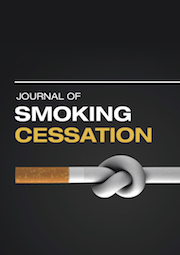Article contents
State Smoking Cessation Quitlines and Smokers With Mental Illness
Published online by Cambridge University Press: 21 February 2012
Abstract
Objective: State smoking cessation telephone quitlines have become an integral part of the U.S. public health strategy for helping smokers quit. It is unclear whether these quitlines meet the needs of smokers with a mental illness, who have unique challenges during the quitting process and may benefit from more intensive treatment compared to smokers without mental illness. We conducted a needs assessment survey of U.S. state quitlines (N = 51 including Washington DC) to learn how they work with mentally ill callers. Methods: Quitline representatives were asked whether they have, or perform, six services chosen to represent basic elements of treatment access, process and structure for mentally ill smokers. Findings: We had a 96% response rate to our survey. All surveyed quitlines accept calls from mentally ill smokers, and all either train their counsellors in mental health or their counsellors have past mental health training. In addition, all quitlines encourage mentally ill callers to discuss quitting with their regular healthcare providers for safety reasons. However, only eight surveyed quitlines (16%) screen callers for mental illness, few (18%) use specific counselling protocols for mentally ill callers, and even fewer (6%) have self-help materials tailored for the mentally ill. Conclusions: Future studies are needed to analyse these variations in state quitline operations to identify the most effective approaches to providing telephone-based treatment for smokers with mental illness.
- Type
- Articles
- Information
- Copyright
- Copyright © Cambridge University Press 2010
- 5
- Cited by




